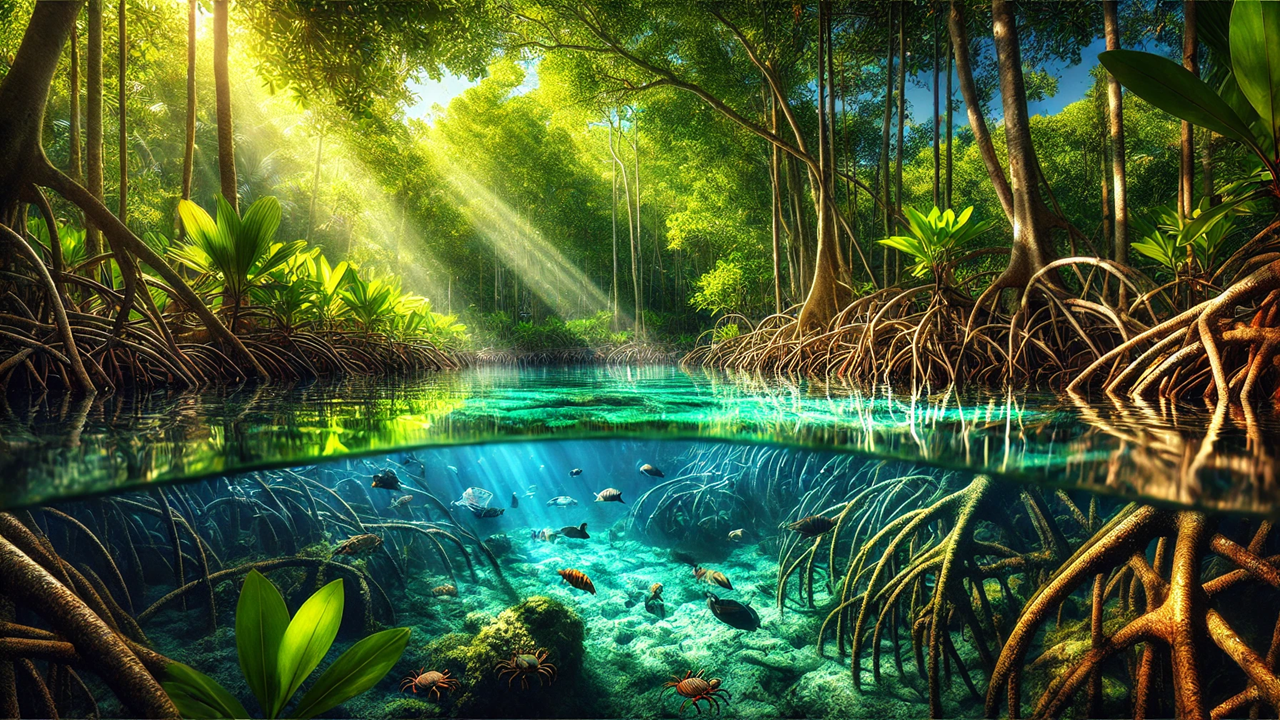Belize’s Blue Carbon Future: Unlocking Climate Solutions in Coastal Ecosystems
Belize is unlocking the potential of blue carbon ecosystems to combat climate change and foster sustainable development. The report highlights key opportunities, challenges, and actionable recommendations to position Belize as a leader in marine conservation.

In a bid to combat climate change and achieve sustainable development, Belize has positioned itself as a global advocate for blue-carbon ecosystems. The findings from the recently released "Belize: A Blue Carbon Readiness Assessment", published by the World Bank, underscore the nation’s potential to utilize its marine and coastal ecosystems as carbon storage powerhouses. This comprehensive assessment highlights the unique opportunities and challenges in leveraging blue carbon to drive climate resilience and economic growth.
The Untapped Potential of Blue Carbon
Blue carbon ecosystems, including mangroves, seagrasses, and salt marshes, are natural carbon sinks that capture and store significant amounts of carbon dioxide. Belize’s extensive mangrove forests and seagrass beds make it a key contributor to this global effort. These ecosystems not only mitigate climate change but also provide essential services such as protecting coastlines, supporting biodiversity, and sustaining local fisheries.
However, their future is under threat. Rapid coastal development, pollution, and unsustainable land use are putting immense pressure on these critical habitats. The report stresses the urgent need to quantify Belize’s carbon stock and assess the sequestration rates of its marine ecosystems to establish a solid foundation for blue carbon initiatives.
A Framework for Policy and Governance
Belize’s readiness to fully embrace blue carbon hinges on robust policy frameworks and institutional support. According to the assessment, the country has made significant strides in legislating for ecosystem conservation. However, governance remains a challenge due to overlapping jurisdictions and insufficient enforcement mechanisms. The report recommends a unified approach that strengthens institutional capacity, fosters inter-agency collaboration and engages communities in conservation efforts.
The document also calls for an inclusive strategy that integrates local stakeholders—particularly coastal communities that depend on these ecosystems for their livelihoods. Empowering these groups through education, incentives, and participatory planning is deemed crucial for sustainable implementation.
Financing the Blue Carbon Transition
One of the most promising avenues for realizing Belize’s blue carbon potential is accessing global carbon markets. The report identifies opportunities in carbon credits and international funding mechanisms but notes the country’s financial readiness gaps. Enhanced capacity-building efforts and strategic partnerships with the private sector are critical to bridge this divide.
Moreover, the report emphasizes that blue carbon initiatives can attract investment and foster economic resilience, particularly in sectors like eco-tourism and sustainable fisheries. By positioning itself as a leader in blue carbon strategies, Belize stands to reap environmental and financial rewards.
Challenges and Opportunities Ahead
While the promise of blue carbon is undeniable, the journey is not without obstacles. Data limitations and the impacts of climate change present significant hurdles. Additionally, balancing economic development with ecosystem conservation requires nuanced policies and careful stakeholder negotiation.
On the brighter side, Belize has a unique opportunity to lead by example. The country’s wealth of natural resources, coupled with its growing reputation as a global conservation leader, offers a platform to advance scientific research and forge international partnerships.
Charting the Path Forward
The "Belize: A Blue Carbon Readiness Assessment" concludes with actionable recommendations to help Belize maximize its blue carbon potential. These include:
Conducting comprehensive assessments to establish baselines for carbon stocks.
Strengthening legal and institutional frameworks to safeguard marine ecosystems.
Promoting sustainable coastal development practices.
Enhancing collaboration between public and private sectors.
By embracing these strategies, Belize can secure a sustainable future for its coastal communities and contribute meaningfully to global climate goals.
Belize’s journey into the blue carbon space demonstrates the transformative power of integrating science, policy, and community-driven solutions. As outlined in the report, effective implementation will require commitment, innovation, and collaboration across all levels of society. With its abundant marine resources and visionary leadership, Belize has a chance to become a global model for blue carbon success.
- FIRST PUBLISHED IN:
- Devdiscourse










